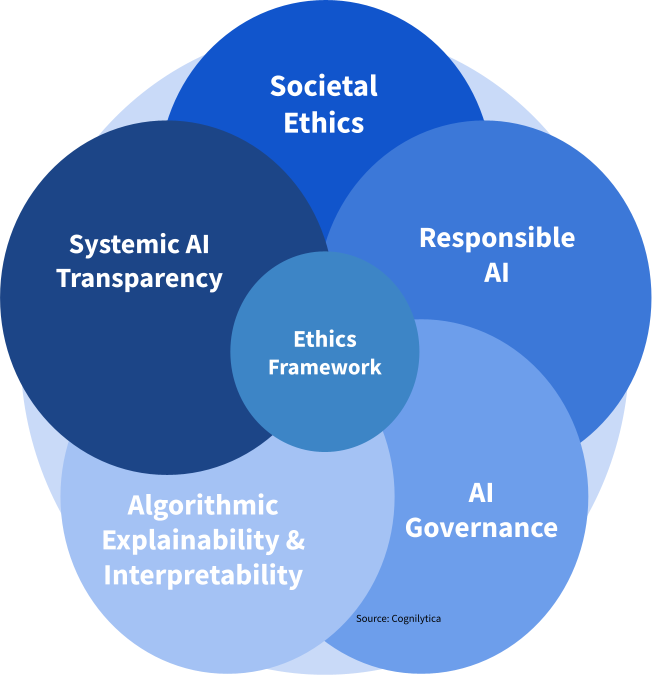Artificial Intelligence (AI) has rapidly transformed various aspects of our lives, from autonomous vehicles to virtual personal assistants. However, this progress has raised serious ethical concerns as the power of AI continues to grow. The ethical dilemma lies in balancing the potential benefits of AI with the responsibility to ensure it is used ethically. This article explores the ethical considerations surrounding AI and the challenges of finding the right balance between progress and responsibility.
One of the key ethical concerns with AI is the potential loss of human jobs. As AI technology advances, more tasks can be automated, leading to fears of widespread unemployment and economic disruption. This raises questions about the responsibility of AI developers and users to ensure that the benefits of automation are shared and that affected individuals are supported in finding new employment opportunities.
Privacy is another crucial ethical consideration. AI technologies have the ability to collect, analyze, and process vast amounts of personal data. This raises concerns about individuals’ right to privacy and the potential for abuse of this data. As AI becomes more integrated into our daily lives, it is crucial to establish clear ethical guidelines and regulations to protect individuals’ privacy rights.
In addition to job loss and privacy concerns, AI also raises moral questions about accountability and decision-making. As AI systems become more advanced, they have the ability to make decisions and take actions autonomously. This raises questions about who should be held accountable for any negative consequences that may arise from AI’s actions. It also highlights the need for transparency and accountability in the development and implementation of AI technologies.
The Rapid Advancement of AI Technology
Artificial Intelligence (AI) technology has witnessed rapid advancements in recent years, revolutionizing various industries and transforming the way we live and work. AI systems can now perform complex tasks such as image recognition, natural language processing, and predictive analytics with remarkable accuracy and efficiency. This rapid progress is attributed to advancements in machine learning algorithms, increased computing power, and the availability of vast amounts of data. As AI technology continues to develop at an unprecedented pace, it raises important ethical considerations and dilemmas that need to be addressed.
AI has the potential to bring numerous benefits to society, including improved healthcare diagnostics, autonomous vehicles, and enhanced productivity in various sectors. However, the rapid advancement of AI technology also presents ethical challenges and concerns. These include issues related to data privacy, algorithmic bias, job displacement, and the autonomous decision-making capabilities of AI systems. As AI technology becomes increasingly complex and powerful, the ethical implications of its use become more significant. Therefore, it is essential to strike a balance between progress and responsibility to ensure that AI is developed and used in an ethical and beneficial manner.
The Responsibility for Ethical AI Development
The rapid advancement of AI technology brings with it a range of ethical concerns. As AI becomes more integrated into our daily lives, it is important that we address these concerns and ensure that AI is developed and used in an ethical and responsible manner.
One of the key stakeholders responsible for ethical AI development is the technology industry itself. Companies developing AI systems have a responsibility to prioritize ethical considerations and ensure that their technology is designed with fairness, transparency, and accountability in mind. This includes taking steps to mitigate biases in AI algorithms, ensuring that AI systems are explainable and understandable to humans, and establishing mechanisms for redress if AI systems cause harm or have unintended consequences.
Government and regulatory bodies also play a critical role in ensuring the responsible development and use of AI. It is important for governments to establish clear guidelines and regulations around the use of AI, including rules around data privacy, algorithmic transparency, and accountability for AI systems. These regulations should be regularly updated to keep pace with the rapidly evolving AI technology landscape.
In addition to the technology industry and government, academics and researchers have a responsibility to conduct rigorous research and contribute to the development of ethical AI. By actively engaging in discussions and debates around AI ethics, academic institutions can help shape the ethical framework for AI development and ensure that the next generation of AI professionals are equipped with the knowledge and skills to develop AI in a responsible manner.
Furthermore, it is important for society as a whole to engage in a dialogue about the ethical implications of AI. This includes raising awareness about AI ethics, fostering public debate, and actively involving diverse stakeholders in decision-making processes around AI development and deployment. By involving a wide range of perspectives, we can collectively work towards ensuring that AI is used for the benefit of all and that its development and deployment are aligned with societal values.
Ultimately, the responsibility for ethical AI development lies with all stakeholders – technology companies, governments, academia, and society as a whole. By acknowledging and actively addressing the ethical considerations surrounding AI, we can strike a balance between progress and responsibility, and ensure that AI technology is developed and used in a manner that is fair, transparent, and accountable.


-p-1080.jpg)